
Are you an E-Class Supply Chain leader?
Whether effective or exceptional, the delineation is essential
By Rick Dana Barlow
If the pandemic-stricken year 2020 taught us anything it reinforced the essential nature – the essentialness – of an effective supply chain that we expected to excel under exceptional leaders.
Alas, and despite best efforts and intentions, the healthcare industry felt supply chain fell just short of the finish line, akin to running on fumes during the last lap of the Daytona or Indianapolis 500.
To continue the car motif, if supply chain were a Mercedes-Benz automobile you might be able to compare the three class levels to the hierarchy of supply chain excellence. For example, the Mercedes-Benz C-Class automobile tends to be smaller and concentrates on cost-effectiveness and fuel efficiency, similar to your entry level to early career Supply Chain professional. The Mercedes-Benz E-Class model represents the mid-size range with more amenities and more horsepower. The top-of-line S-Class motorcar remains the largest, luxurious and most expensive of the lot, much like successful soon-to-be Hall of Famers.
Whether effective or exceptional, the differences are slim but notable. One involves commitment, duty and functionality; the other involves attitude, behavior and capability.
In short, you can be effective without being exceptional, but in order to be exceptional you must first be effective. In that regard, effectiveness may serve as a prerequisite to being exceptional.
What makes for an “exceptional” leader versus an “effective” leader? How do you distinguish between the two? What makes them distinctive? Hall of Famer and Future Famer supply chain executives know the difference … their difference.
Taking stock

Bob Simpson
“An effective leader will achieve the goals set for him/her, but usually not take the risks needed to achieve success beyond what they are required on a day-to-day basis,” said Bob Simpson, Bellwether Class of 2012. “You must always be willing to put your job at risk to accomplish what you know is right for your institution.
“An exceptional leader will work to set the standard for supply chain effectiveness both locally and nationally,” he continued. “Serving on national committees, speaking on issues of key importance, training others in our profession.”
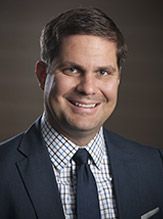
Erik Walerius
Erik Walerius, Future Famers Class of 2016, offers more of a holistic approach.
“Exceptional leaders or transformation leaders are ones that you’re excited to work for, and inspire and motivates others,” Walerius told Leaders & Luminaries. “They are able to lead a team or individual to a decision by shaping a path to that decision that aligns with their goals while simultaneously fostering a team approach/buy-in. They also possess humility to incorporate wisdom and guidance from all levels/parties and course correct when appropriate.
“Effective leaders get the job done but might on occasion, have collateral damage in their path which may or may not have been deemed necessary to reach a milestone or finish line,” he noted. “Both exceptional and effective leaders create an environment where one strives for their best self and where similar to parenting, disappointing that leader is much worse than angering or frustrating them.”
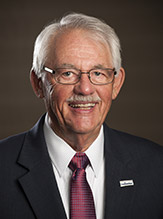
Lee Boergadine
By his measurement and observation, Lee Boergadine, Bellwether Class of 2008, stretches the line between the two classes.
“An ‘effective’ leader is one who meets all expectations and occasionally exceeds those expectations with creative ideas that are implemented and improve performance,” Boergadine indicated. “On the other hand, an ‘exceptional’ leader is one who constantly meets expectations but also is always on the lookout for new creative and effective ways to achieve results in a more efficient manner. Obviously, the leader who only seeks to maintain the status quo in an effective manner is not as highly sought as is a leader who is constantly looking for ways to improve on current methodology.”
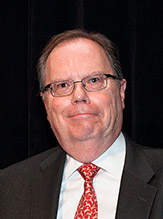
Jim Olsen
Jim Olsen, Bellwether Class of 2015, offers more of a stark contrast.
“I see the effective leader as someone who gets the job done,” he said. “Exceptional leaders get the job done, develops teammates to grow and succeed and take supply chain to the next level in their organization. In addition, they look long-term at what will be needed for the organization to thrive.”
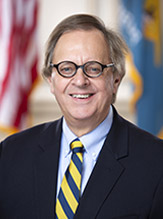
Ray Seigried
Ray Seigfried, Bellwether Class of 2012, shares that sentiment, casting it with a degree of eloquence.
“To me an ‘exceptional leader’ is one who always or most of the time surpasses the established goals,” Seigfried noted. “This type of leadership has characteristic like a system thinker [that] builds vibrant team coalition, communicates effectivity, has a vision and can describe it to all levels of the team, provides regular feedback and removes obstacles in the way of achieving the vision.
“An ‘effective leader’ is one who achieves the intended results,” he continued. “This type of leadership has many of the same characteristics but relative to the goal itself. Both types of leaders are needed in every organization. I think it is important to match the leadership style with the task that you need to achieve.”

Winnie Hayes, Ph.D.
Supply Chain professionals should aim for exceptionalism and not be content or satisfied with effectiveness, according to Winnie Hayes, Ph.D., Bellwether Class of 2018.
“An exceptional leader builds a strong team, ensuring that key functional areas are represented by competent individuals,” she acknowledged. “He or she is both strategic in his/her thinking while ensuring that the plan has well defined goals, strategies and tactics, and is executed and evaluated based on key performance metrics. The supply chain vision, goals and plan must support the entire organization’s strategic plan. The exceptional leader effectively communicates supply chain’s mission and vision, generating enthusiasm and commitment. He or she leads via example and recognizes the accomplishments of the supply chain team.
“The exceptional leader forms collaborative relationships within the Executive Team and throughout the enterprise,” Hayes continued. “This individual must form solid working relationships with clinical leadership. Finally, the [exceptional leader] must be a lifelong learner, constantly seeking to identify innovations, strategies, tools and approaches that leverage and automate aspects of sourcing and procurement that bring efficiencies to supply chain and clinical performance.”
Culture clasp
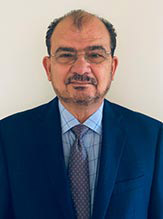
Nick Tuscano
Exceptional leaders and effective leaders share some common skills and attributes but there are differences, according to Nick Toscano, Bellwether Class of 2018, Bellwether League Foundation Advisory Council member, 2021, Bellwether League Inc. Board Member, 2020. “While effective leaders are more ‘traditional,’ the exceptional leader is more ‘transformational,’” he declared.
Toscano toggles between requisite traits.
The traits of an effective but more traditional leader include:
- A “top down” more authoritative leadership approach
- Is more prone to dominate the discussions with subordinates and leans toward being more autocratic
- Is tough-minded and bold in her or his approach to leading
- Presents herself or himself as self-assured and confident
- Typically drives ideas and goals that she or he created without a lot of collaboration but communicates her or his expectations very well
- Is enthusiastic and coercive. Makes certain that the team and individuals clearly understand what to do in driving results, measuring status frequently
- Is effective in getting things accomplished.
The traits of an exceptional (transformational) leader include:
- Being purpose driven and has a higher vision and purpose for her or his organization that looks for success inside and outside the walls of the organization (i.e., better community, society, world)
- Has a “servant leader” approach, always putting the needs of others first
- Has a strong set of values and guiding principles driving integrity, ethics, fairness and respect
- Has a great sense of self awareness, is confident, humble and truthful, yet decisive and fair-minded
- Cares about her or his people’s lives, not simply their jobs
- Is very perceptive and understanding
- Values the team’s skills and contribution, and is a great listener, always seeking the opinions and ideas of the team
- Creates an environment of trust while creating a culture of openness
- Empowers and encourages others to lead
- Always looking to teach, educate and mentor
- Leads a collaborate planning process with her or his team and internal customers to develop strategic and operating goals and objectives with the higher purpose in mind
- Thrives on change acceleration and transformation strategies
- Removes barriers and creates opportunities to deliver best practices
- Is highly motivated towards innovation
- Takes risks responsibly with a great sense of stewardship
- Has high emotional intelligence capable of being calm and empathetic in times of uncertainty or crisis.
What makes either exceptional or effective leaders more desirable over the other depends on the organization’s culture, Toscano recognizes.
“Traditional organizations that deliver solid healthcare but are slow to embrace change and transformation may be better suited to employ an ‘effective’ leader,” he said. “The traits of this leader will most likely align with his or her peers and be better able to communicate across the leadership team. In this type of organization, a more ‘top-down’ approach as described herein could be very effective.
“On the other hand, an ‘exceptional’ leader will be much more effective in an organization that embraces change and innovation,” Toscano continued. “This organization’s culture allows for transformational leadership to thrive by exhibiting her or his skills and attributes as outlined [already]. This organization and his leadership have a unique cultural language that is shared and understood across the organization. This allows everyone in the organization to understand, embrace and contribute to the strategic goals and objectives.”
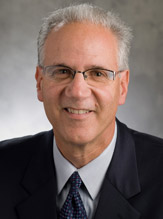
Tom Lubotsky
The organizational type may see more of one class of leader than the other, according to Tom Lubotsky, Vice President, Supply Chain, Allina Health, Bronze Sustaining Sponsor.
“Navigating networks across multiple constituencies in a complex healthcare system is less common among effective leaders but increasingly important and evident for exceptional leaders,” he observed. “Balancing stakeholders is instrumental in getting things done. Customers, suppliers and various healthcare leaders all have different interests that need to be understood and reconciled. Effective leaders may not go after understanding stakeholders in the most complete and comprehensive fashion, while exceptional leaders spare no missed detail in understanding who is impacted on advancing its key supply chain initiatives.”
Much depends on results generated, Lubotsky emphasizes.
“Aligning execution is a very important skill across all leadership levels, and it is correlated with strong performance as well as promotion for exceptional leaders,” he indicated. “Effective leaders are only average in this area. Fortunately, it is easier to develop than most leadership skills.”
Exceptional leaders exceed effective leaders in a number of specific areas, Lubotsky insistes.
“Managing conflict is an extremely rare skill across all levels of leadership,” he noted. “Exceptional leaders do this better than effective leaders even though it is one of the most difficult skills to develop, due in part to the emotionally charged nature of conflict. Ensuring accountability is strongly associated with exceptional leaders since it is so linked with performance. Effective leaders may aspire to assume accountability, but may not execute [this] skill set to the fullest.
“Exceptional leaders can build partnerships across functional, cultural, organizational and broad boundaries to connect people who can accomplish goals,” he continued. “They usually consider multiple points of view, focus on balancing competing needs, set a clear and few priorities and look for win-win solutions. They set clear objectives and allocate organizational resources in order to accomplish strategic priorities. They establish systems that monitor organizational performance and hold others accountable for meeting or exceeding objectives.”
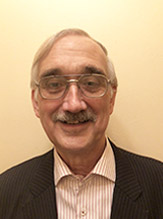
Br. Ned Gerber
Br. Ned Gerber, Bellwether Class of 2010, who died last August, encourages the mincing of words.
“Words are often used loosely,” he replied. “But in this case, you ask for specific characteristics. I suggest it helps to look at the etymology of both ‘effective’ and ‘exceptional.’ The word effective comes from the same Latin root as ‘efficient’ – the infinitive efficere [or] to accomplish or achieve a result or product. Some people accomplish things in a rather disorganized way and are not technically efficient. But the two words ideally have a common focus. That is, an effective leader both knows the truly important tasks and makes sure that these tasks are accomplished in a cost-effective way.
“In contrast, the word exceptional comes from a Latin root, too – the infinitive capere[or]to take, plus the prefix ‘ex.’ In other words, exceptional means to take from the ordinary, and is used of that which is extraordinary,” Gerber explained. “Leaders may be deemed exceptional for different reasons. Some are especially congenial and warm-hearted towards staff. Some are especially knowledgeable due to a clinical or technical background, etc. All that has its place. But I suggest a truly exceptional leader must also be effective. After all, if a leader is not effective, can we really say that he or she is exceptional?”
Gerber closes with this astute observation.
“In practice, I suspect the word ‘exceptional’ actually relates to an unusual ability to project oneself and one’s ideas – i.e., to be able to ‘sell’ oneself or one’s program,” he added. “That is indeed useful … so long as effective results follow. Otherwise, the gloss will surely wear off over time.”